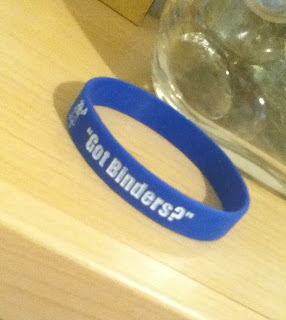It has
been six months since my transplant. Overall, I think I am doing great. In my
appointment with my transplant nephrologist last week, he said that my lab
numbers look great. If these numbers continue, I may just need to go to the
labs once a month. My doctor even said that these are ideal for a kidney
transplant recipient. My last creatinine was 0.95! My husband and I couldn’t be
any happier.
I am
elated with these results and am very determined to maintain these numbers. For
me to able to maintain these great numbers, I need to remember to do these key
items.
Take
your medications regularly. Taking your immunosuppresants, anti-infection, and other maintenance
medications are very important for any transplant recipient. This ensures that
the immunosuppressant levels, which are critical in preventing the body to
reject the new kidney, are at optimum levels. I should read my post on taking your meds as a reminder.
Keep
moving. This means exercise, exercise, and more
exercise. I find that when I walk, my body (and mind) is able to function more
efficiently. I make it a point to exercise at least 20-30 minutes a day whether
if it is walking, practicing aikido, or dancing hula. Sometimes I do overdo it,
like last Saturday, when I went to a 2-hour hula workshop and walked almost 40
minutes (one way) to go to a baseball game. While it is important to move, do
it in moderation and consult your doctor before you start a new exercise
routine. I have to keep reminding myself that my surgery was not too long ago.
Rest and recovery are still equally important.
Maintain
a balanced diet.
Must. Eat. Healthy. Since I now have a healthy kidney, I can pretty much eat
whatever I want. I do not have any more restrictions on phosphorus (and therefore no need for binders) so I can add whole wheat
and other grains in my diet. I loved experimenting on different grains. When I
was in dialysis, I was pretty much limited to white rice and white bread. Now,
I can have quinoa, barley, corn meal, and oats (my favorite). I still need to
be careful though; immunosuppressants may increase potassium in one's system so
you may need to watch high-potassium foods like bananas, mangoes. and coconut.
More on this later…. I feel a post coming.
Maintain
food safety. Just
as important as keeping a healthy diet is maintaining excellent food
safety. Bad bacteria in foods can make you
sick, and since my immune system is lowered, I am more susceptible to
illness. Also, my nutritionist said that certain salmonella can considerably
damage my kidney. Maintaining good food preparation habits and selecting
reputable restaurants with a clean kitchen are very important. Check the
National Kidney Foundation's article on Food Safety or my previous post on this.
Keep
hydrated. My new
kidney needs to be constantly hydrated, so I need to drink plenty of water. In
fact, my excellent creatinine results were partly due to the summer heat. I was
drinking so much water since I was always thirsty with this summer heat. To my
surprise, my creatinine considerably improved. I do need to go to the bathroom
more… deal with it!
Manage
your stress levels.
Stress has been known to adversely affect one's health: whether it is stress
from your medical condition, work, or relationships. I try to keep my
stress-levels low by having a positive attitude and surrounding myself with
positive people. I also try to have some quiet time either through meditation,
walking, or even blogging. These allow me to center myself and hear my thoughts
better.
Have a
good support system.
Having an understanding husband and good close friendships were very key during
my recovery. My husband provided most, if not all, of the physical help needed
in that period: cooking meals, cleaning, driving me to doctor’s appointments.
He was a rock, and I am very grateful he is here to support me. My friends also
provided encouragement and support even though some of them are hundreds, if
not, thousands of miles away. They kept my spirits up and kept me going. I need
to remind myself to maintain my relationships and never take them for granted.
I still
have a long way to go, and getting through these last six months is just a step
in the process. I want to have a healthy kidney for a long time, maybe for the
rest of my life. To accomplish that I need to continue to always keep these tips in mind.
I’d love
to hear from you if you have any more advice for me. Wish me luck!!!

